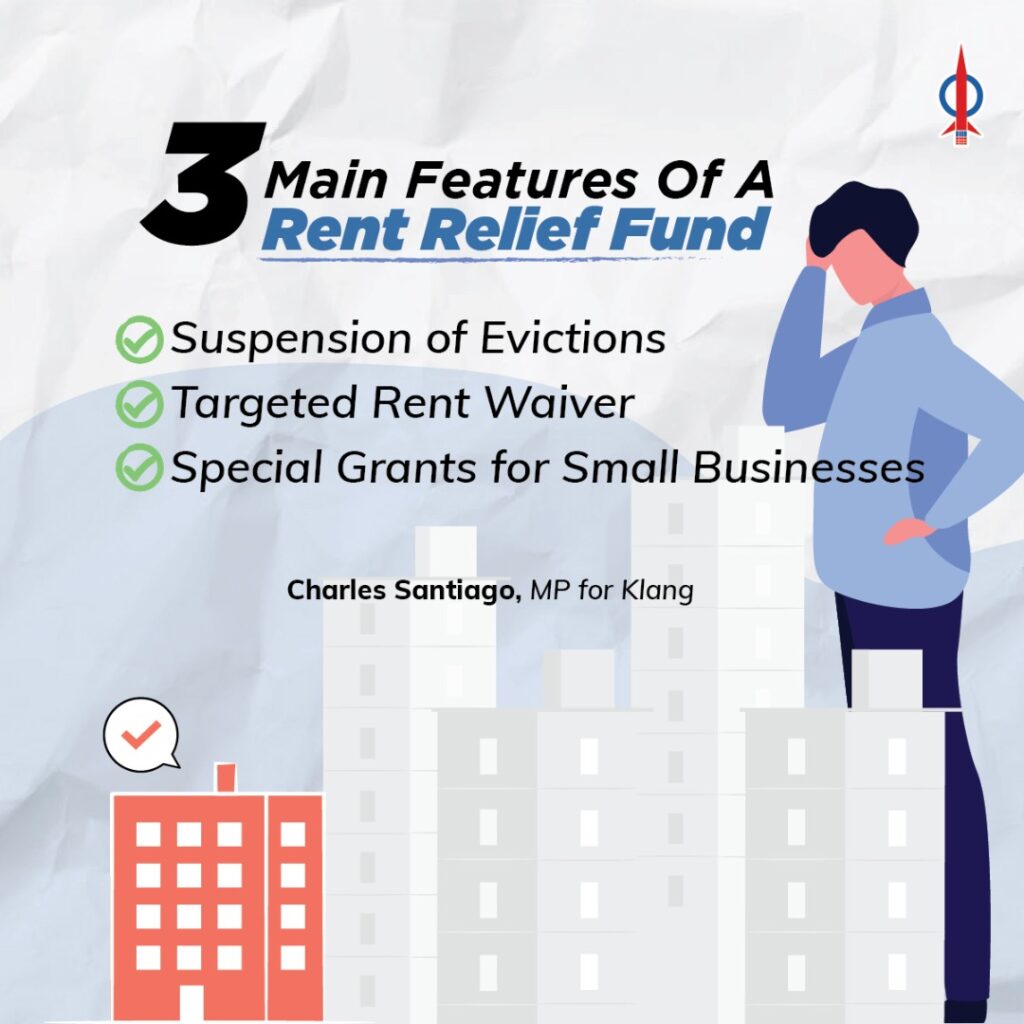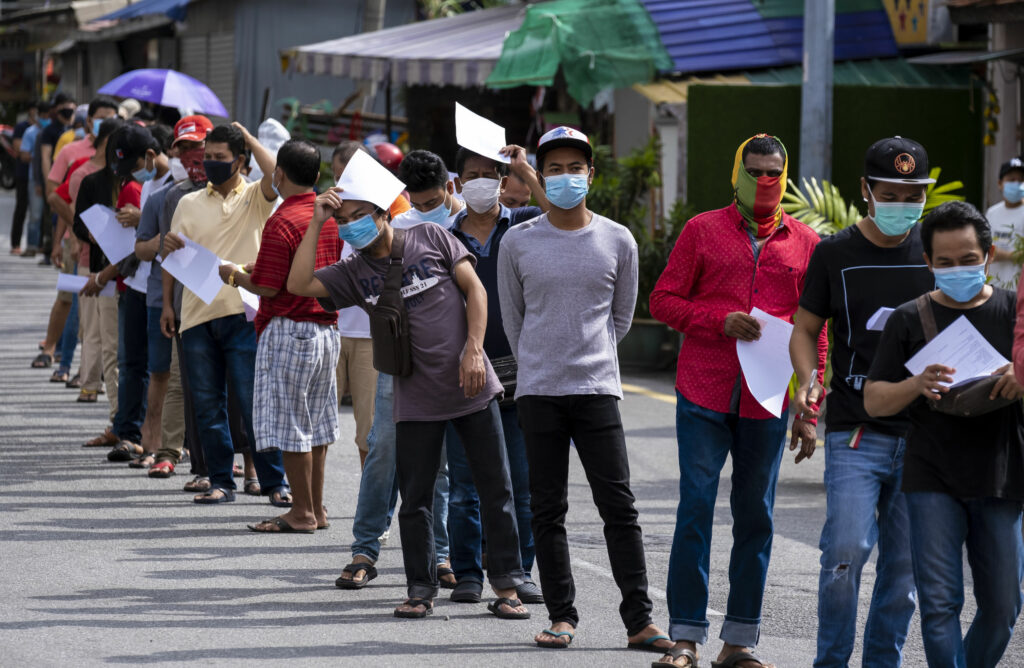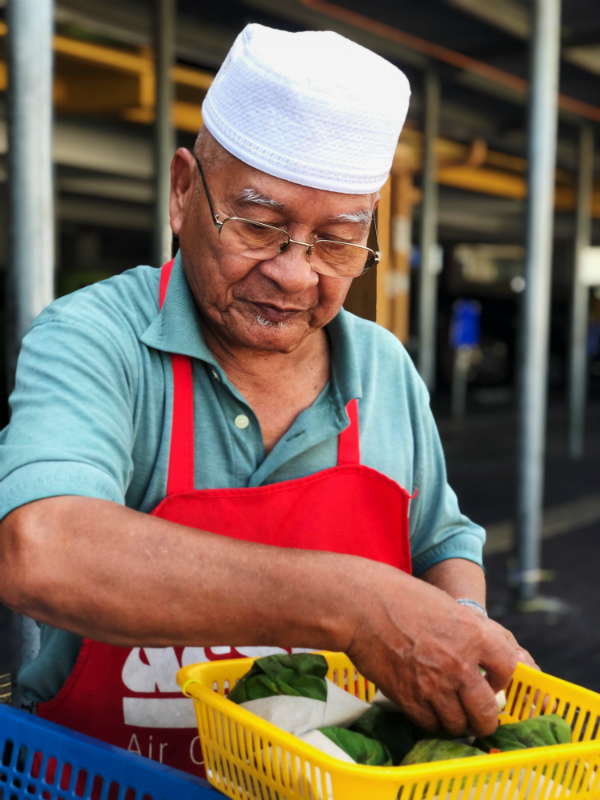
I have been hitting so many déjà vu moments from the start of this conditional lockdown.
And let me answer before you ask: nope, not pleasant ones.

So, what more can be done on top of Prime Minister Muhyiddin Yassin’s September announcement of an additional economic stimulus package worth RM10 billion to help industries and Malaysians badly hit by the coronavirus pandemic?
I would say the government needs to set-up a separate Rent Relief Fund (RRF) to help targeted small, family-owned or independent businesses.
And also expand this to include selected small and medium enterprises (SMEs), which run food businesses, for example.
The Fund that I am proposing must include these three main features:
(a) Suspension of evictions:
No family or business should be forced out of their premises, even if they miss a payment, until 31 December 2021. Landlords should try to reach an agreement with their tenants.
(b) Targeted Rent Waivers:
Government should waive off the leases for all the families who stay at Projek Perumahan Rakyat (PPR) and Perumahan Awam (PA) which is under Ministry of Housing and Local Government.
(c) Special grants:
Government should provide special grants for small businesses that experience a 30% revenue drop, year-on-year, by subsidising 60% of their rental fees and capped at RM8,500 until December 2021.
These grants should focus on catering, retail and trade, small hawkers in markets, car workshops etc where their incomes are less than RM15,000 per month, regardless of whether the space rented is either government or private premises.

Many are deep in debt, not being able to make rent due to lockdown-related closures.
Loss of income sets a chain of events in motion – inability to pay house and business rental, car and housing mortgage payments. Also, it involves spending less on food and other basic necessities.
I understand that questions and suggestions abound on the role of the state and where it decides to pump its money.
The answer isn’t simple but evidently much support needs to go into keeping a lid on the number of shuttered restaurants and mum-and-pop shops.

The support needs to also be targeted to help women with children, single mums and women-led households.
We already have examples of how our government can tailor it’s rent relief fund:
In Hong Kong, the government increased additional rental and fee concessions for tenants and waiver-holders such as catering facilities, shops, workshops, public fee-paying car parks, and welfare facilities, from 75% , April to September.
Singapore has offered a rental relief programme that include all SMEs and non-profit organisations, including another two months on appeal.
In Luxembourg, Companies of all sizes as well as the self-employed can get the benefit of a repayable advance. The aid can cover up to 50% of the rental costs, capped at €10,000 monthly per single enterprise from March-May.
Through the Emergency Rental Assistance Program, the US government will allocate $150 million to help income-eligible residents across the state pay their rent during this national emergency.
It will also open applications for Emergency Mortgage Assistance, providing $150 million to homeowners impacted by COVID-19.
Small traders need all the support in these difficult times as rent is one of the highest operating costs. They don’t have the reserves as big companies. This makes them more vulnerable to closure.
Closure of small business will lead to more layoffs, non payment of bank loans, dependence on “ah longs” and more people will fall into poverty.
Rental Relief Fund is premised on the notions of fair sharing of economic hardship and for the common good of society and economic sustainability.
Through this, we provide a life-line for businesses and keep employment intact, thus preventing a crisis.
Charles Santiago
Member of Parliament Klang



